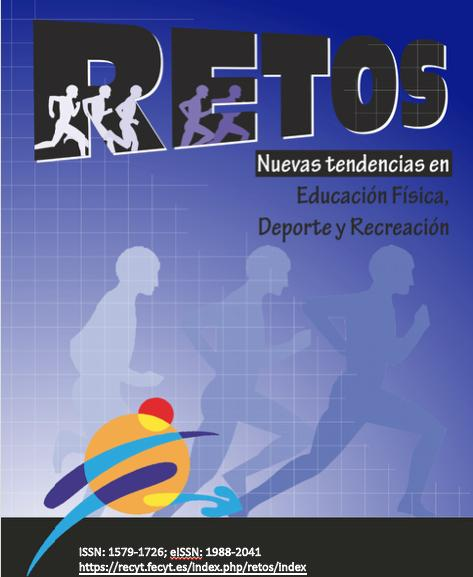Impact of recreation on the integral development of students
DOI:
https://doi.org/10.47197/retos.v70.117018Keywords:
Basic education, comprehensive development, learning, recreation, school performanceAbstract
Introduction: School recreation represents a key pedagogical tool for the integral development of students. Its application strengthens physical, emotional, social, and cognitive areas.
Objective: The aim of this study was to analyze the impact of recreational activities on the integral development of basic education students in public institutions in Ecuador, considering fundamental dimensions of personal growth.
Methodology: A quantitative, non-experimental approach was used, with a correlational design and cross-sectional scope. The sample consisted of 128 students selected through non-probability sampling. A questionnaire validated by experts was applied, with a reliability coefficient of α = 0.88. Data analysis included descriptive and inferential statistics.
Results: The results indicated a positive influence of recreation across all analyzed dimensions. Higher averages were observed in the physical and emotional aspects, followed by the social and cognitive dimensions. The correlations between recreation and integral development were statistically significant.
Discussion: When comparing the findings with previous research, it was confirmed that recreation enhances self-esteem, coexistence, and learning. These results are consistent with studies conducted in similar educational contexts in Ecuador and Latin America.
Conclusions: It was concluded that school recreation had a positive effect on the integral development of students. Its systematic implementation constitutes an effective contribution toward an inclusive, humanistic education focused on student well-being.
References
Bisquerra, R. (2009). Métodos de investigación educativa. Barcelona: Ceac.
Creswell, J. W. (2014). Research design: Qualitative, quantitative, and mixed methods approaches (4th ed.). SAGE Publications.
Cuadrado Iguarán, H. (2024). Educación emocional como una herramienta para mejorar el proceso educativo en Colombia: una revisión documental. Revista Digital de Investigación y Postgrado, 5(10), 173-181.
Delors, J., Amagi, I., Carneiro, R., Chung, F., Geremek, B., Gorham, W., ... & Nanzhao, Z. (1996). La edu-cación encierra un tesoro. Informe a la UNESCO de la Comisión Internacional sobre la Educa-ción para el siglo XXI. Fondo de Cultura Económica.
El Reguillo Charris, K. y Rojas Zambrano, P. (2023). Actividades lúdicas en la convivencia escolar. Ima-ginaria, 18(2), 404 – 425.
Hernández, R., Fernández, C., & Baptista, P. (2014). Metodología de la investigación (6.ª ed.). McGraw-Hill.
Jiménez Espinosa, R., Heras Calle, N., Cambisaca Cajamarca, C., Guaraca Paucar, C. y Palacios Zumba, E. (2025). Educación para el desarrollo sostenible en Ecuador: Integración curricular en la edu-cación general básica. MENTOR Revista de Investigación Educativa y Deportiva, 4(10). https://revistamentor.ec/index.php/mentor/article/view/8918/7623
Ministerio de Educación del Ecuador. (2023). Currículo de la Educación General Básica. Quito: Direc-ción Nacional de Currículo. https://educacion.gob.ec
Monar Miranda, P., Moreno del Pozo, G. y Monar Miranda, M. (2025). Importancia del juego en el desa-rrollo social y emocional en niños de educación inicial. Revista Científica Arbitrada de Investi-gación en Comunicación, Marketing y Empresa REICOMUNICAR, 8(15), 463 – 483. https://doi.org/10.46296/rc.v8i15.0337
Morales Zumba, J. y Orellana Rodas, S. (2024). Estrategias de arte y recreación dirigidas a los estudian-tes de la Unidad Educativa Especial Gualaceo. [Tesis de Licenciatura, Universidad del Azuay] https://dspace.uazuay.edu.ec/handle/datos/15168
Pérez Conde, M. y Díaz Aguilar, C. (2025). Educación emocional en el aula. Un reto formativo. Revista Internacional de Educación Emocional y Bienestar, 5(1), 1 – 22. https://doi.org/10.48102/rieeb.2025.5.1.e139
Rodríguez, F., Garcés Angulo, J., García Gaibor, J., Córdova Portillo, M., Correa Echeverry, J. y Aimara Paucar, J. (2023). La influencia de la actividad física sobre el rendimiento escolar en estudian-tes de primaria. Polo del Conocimiento, 6(9), 991 – 1015. DOI: 10.23857/pc.v6i3.2386
Sánchez Alava, M., Delgado Carrillo, L., Marroquín Torres, V., Aguirre Peralta, S., Estrada Valarezo, S. y Verdugo Ortiz, L. (2025). El juego como estrategia de enseñanza en educación inicial. South Florida Journal of Development, 6(5), 1 – 14. https://doi.org/10.46932/sfjdv6n5-026
UNICEF. (2021). Convención sobre los Derechos del Niño: versión actualizada y comentada. Fondo de las Naciones Unidas para la Infancia. https://www.unicef.org/ecuador
Velázquez Reyes, L., Kaplan, C., Contreras Méndez, M., Florez Perdomo, L., Duarte Cruz, J. y Peisajo-vich, M. (2022). Educación y resiliencia en tiempos de pandemia. Nosótrica Ediciones.
Zamora Olivos, S., Segarra Merchán, S., González Encalada, S. y Vitonera Pazos, M. (2023). El aprendi-zaje significativo en la educación actual: una reflexión desde la perspectiva crítica. Revista EDUCARE, 27(1), 218 – 230. https://doi.org/10.46498/reduipb.v27i1.1896
Downloads
Published
Issue
Section
License
Copyright (c) 2025 Rosa Maribel Párraga Castro, Jenny Mariuxi Fajardo Peláez, Geoconda de los Ángeles Mota Rodríguez, Luis Israel Tacuri Andrade

This work is licensed under a Creative Commons Attribution-NonCommercial-NoDerivatives 4.0 International License.
Authors who publish with this journal agree to the following terms:
- Authors retain copyright and ensure the magazine the right to be the first publication of the work as licensed under a Creative Commons Attribution License that allows others to share the work with an acknowledgment of authorship of the work and the initial publication in this magazine.
- Authors can establish separate additional agreements for non-exclusive distribution of the version of the work published in the journal (eg, to an institutional repository or publish it in a book), with an acknowledgment of its initial publication in this journal.
- Is allowed and authors are encouraged to disseminate their work electronically (eg, in institutional repositories or on their own website) prior to and during the submission process, as it can lead to productive exchanges, as well as to a subpoena more Early and more of published work (See The Effect of Open Access) (in English).
This journal provides immediate open access to its content (BOAI, http://legacy.earlham.edu/~peters/fos/boaifaq.htm#openaccess) on the principle that making research freely available to the public supports a greater global exchange of knowledge. The authors may download the papers from the journal website, or will be provided with the PDF version of the article via e-mail.


